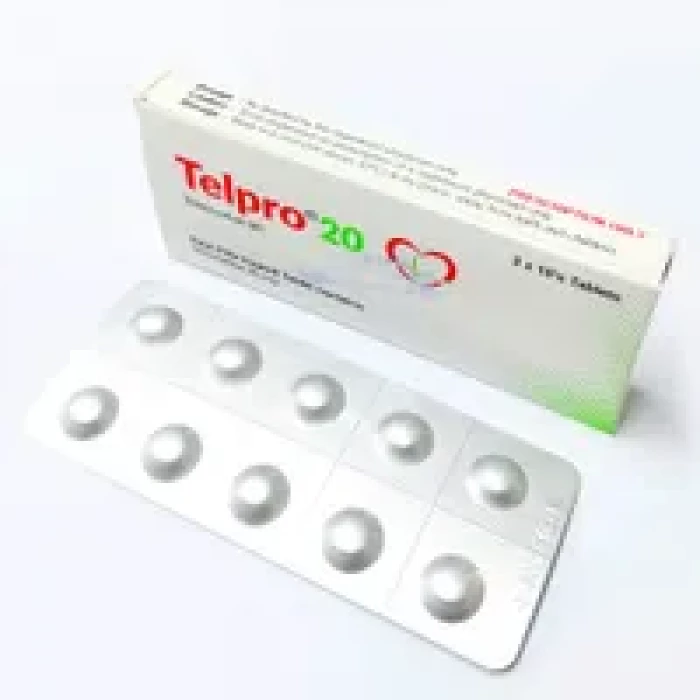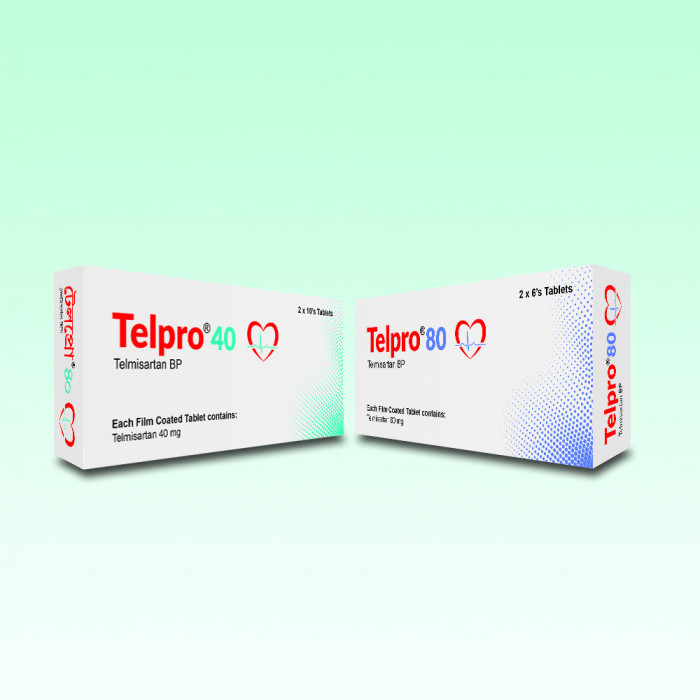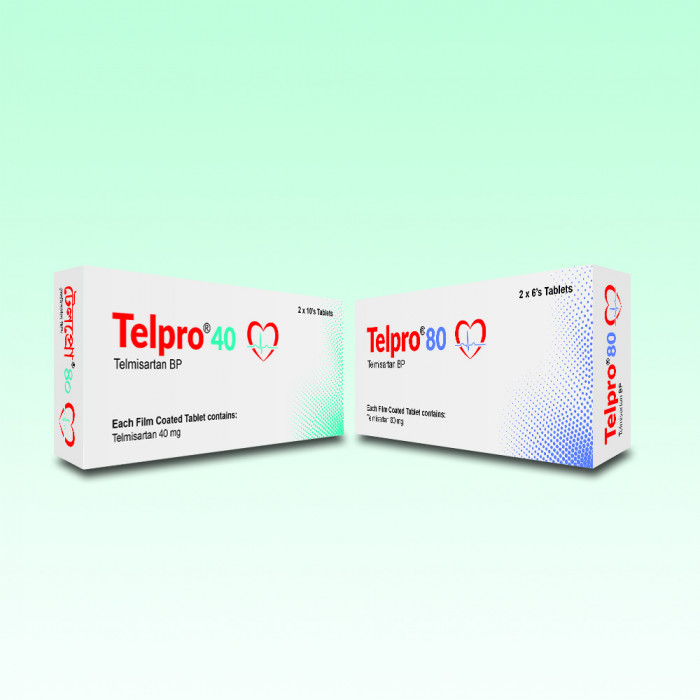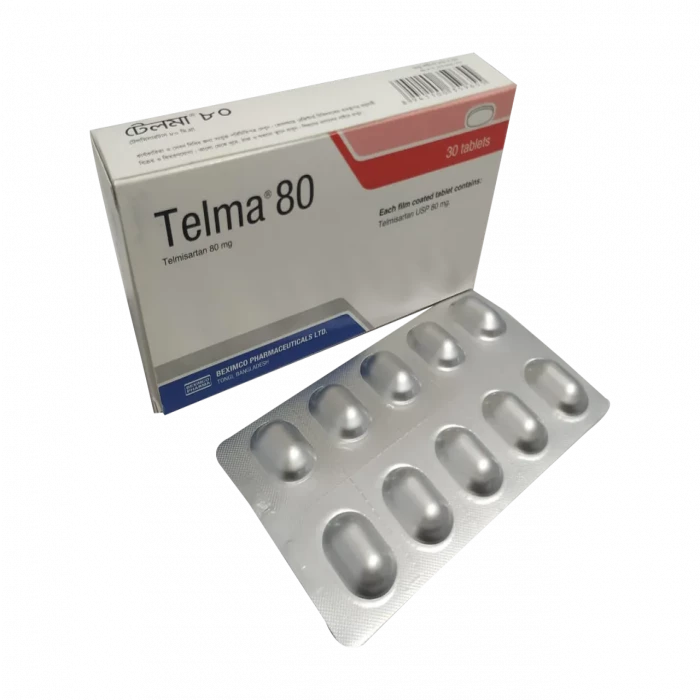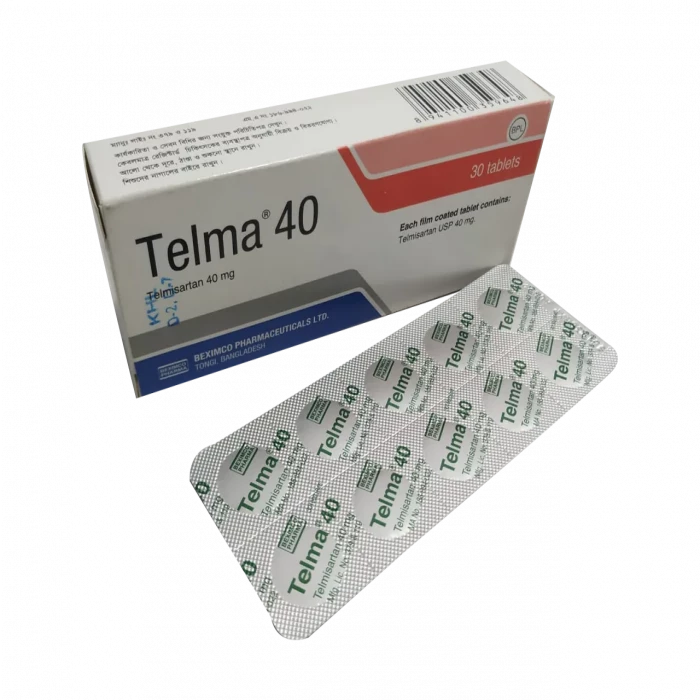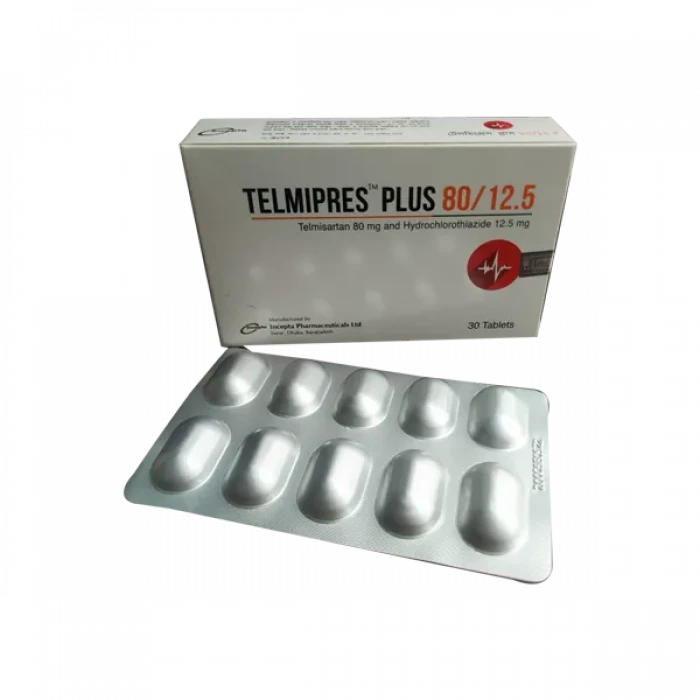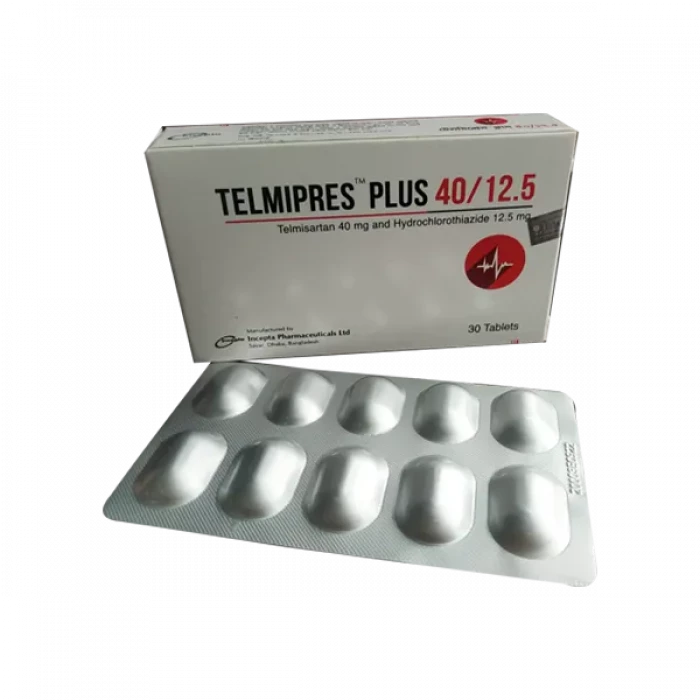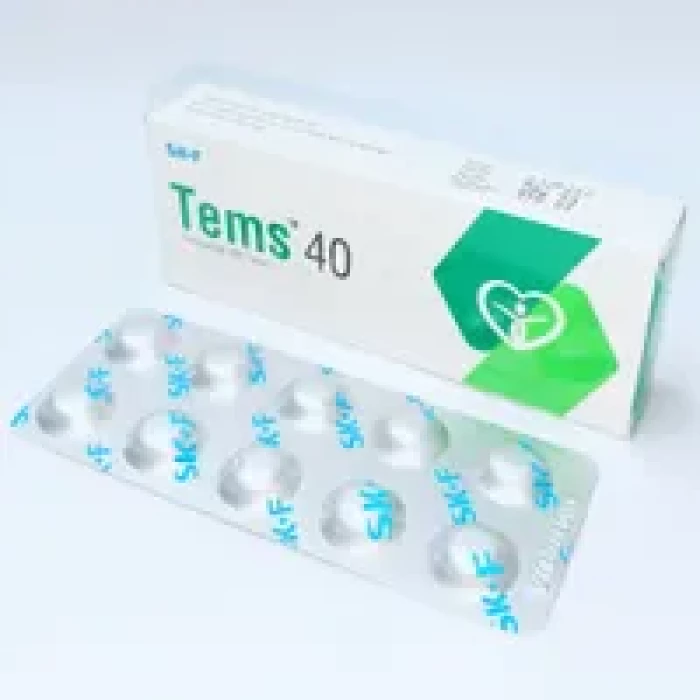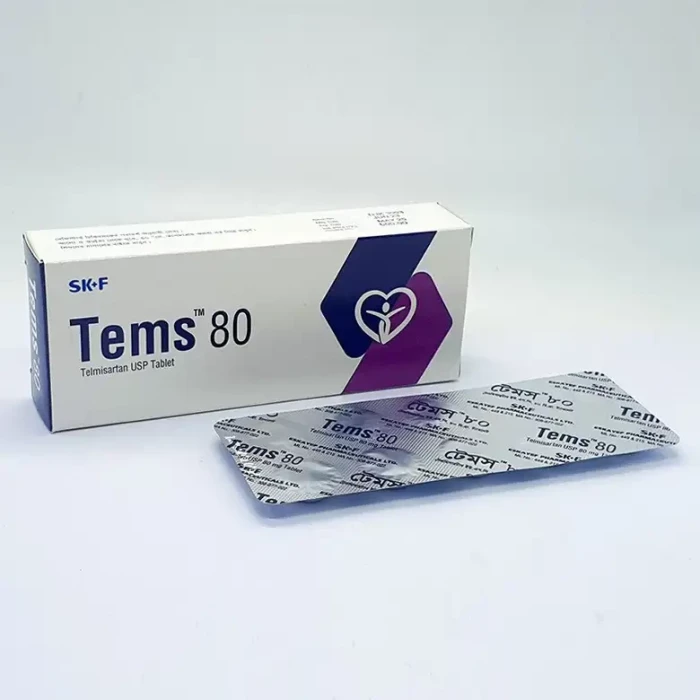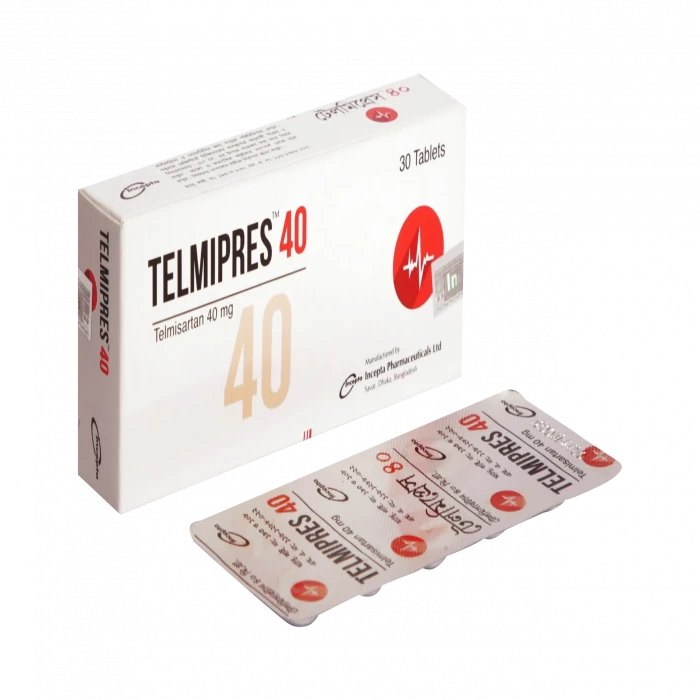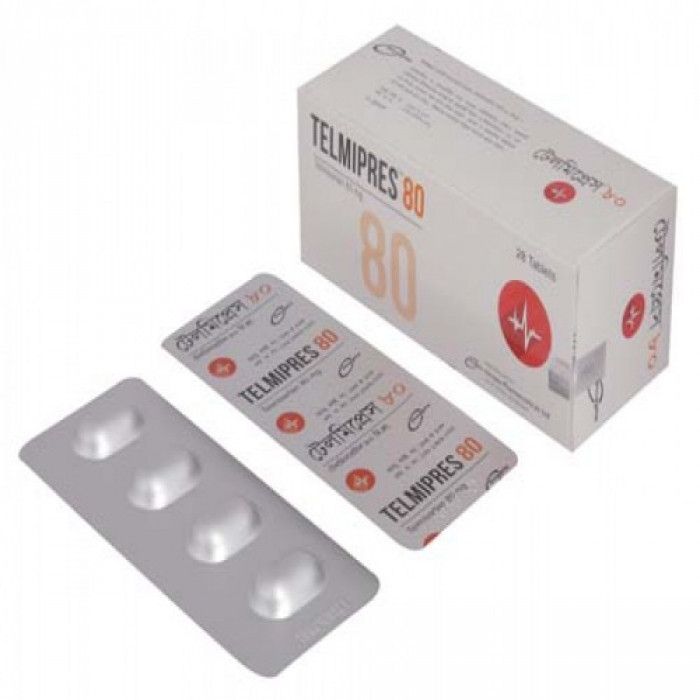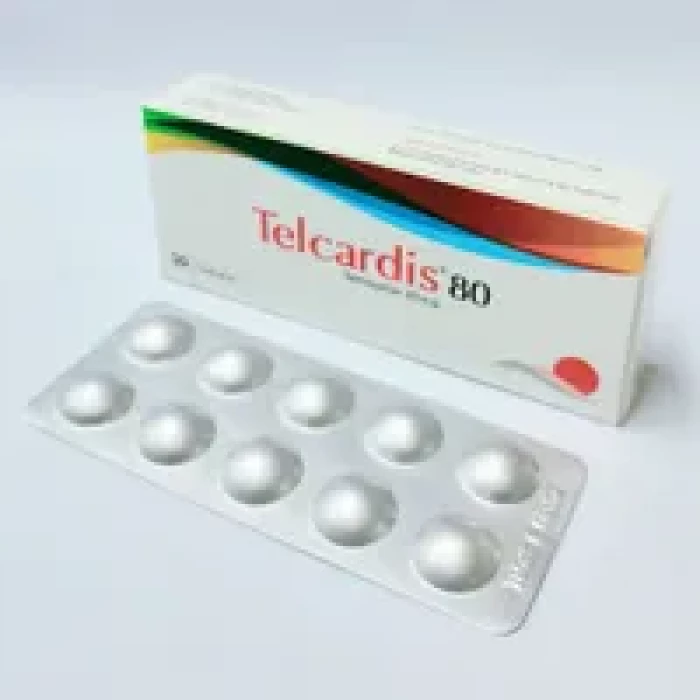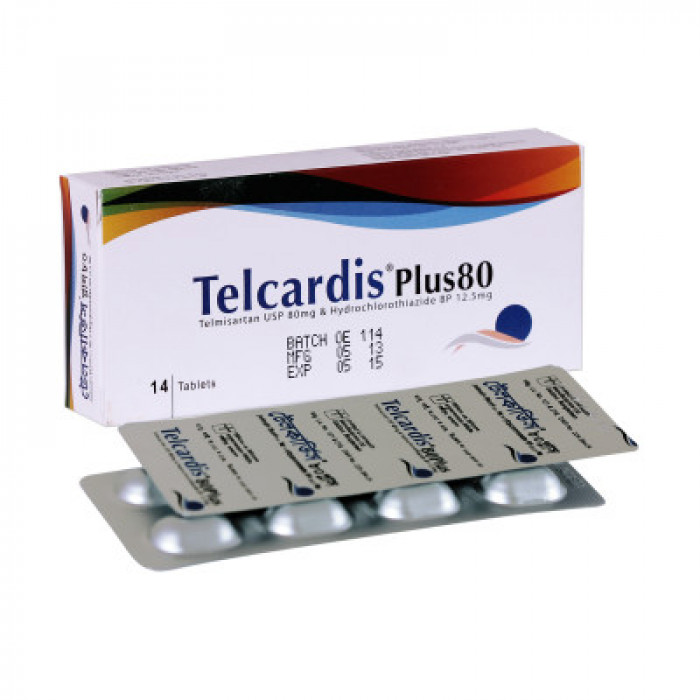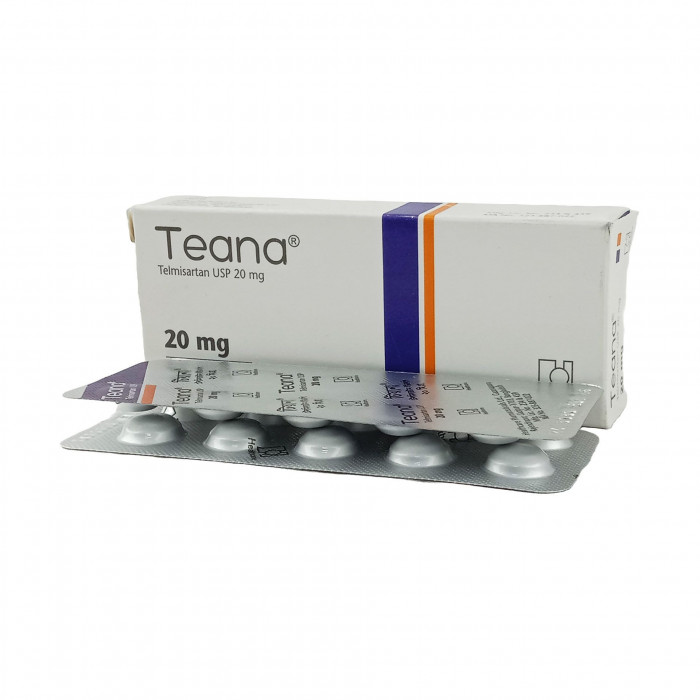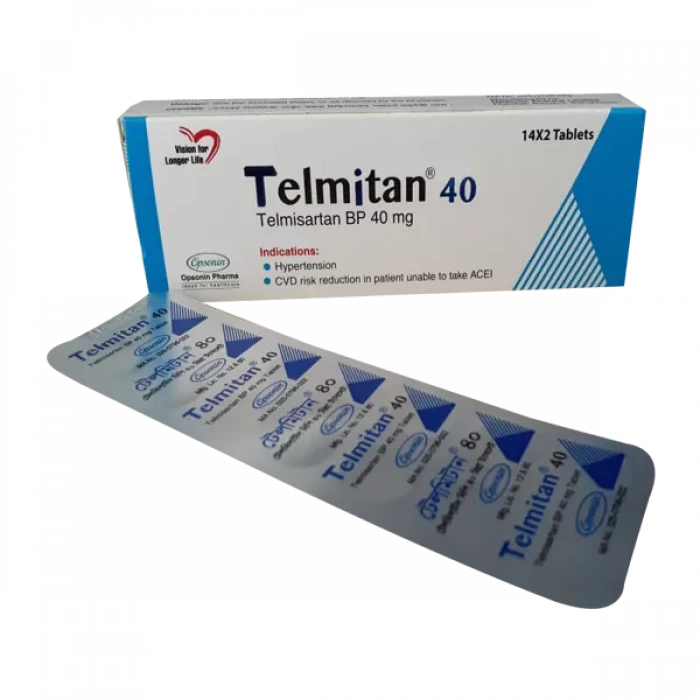
✔ 100% Authentic Product
👁️ Currently Viewing 1632
✅ Description:
Indications
Telmisartan is used to treat a variety of conditions.
Adults with essential hypertension are treated with hypertension medication.
Cardiovascular prophylaxis is defined as the reduction of cardiovascular morbidity in adults through the use of:
Atherothrombotic cardiovascular disease (history of coronary heart disease, stroke, or peripheral arterial disease) or atherosclerotic cardiovascular disease (history of coronary heart disease, stroke, or peripheral arterial disease)
Diabetes mellitus type 2 with verified harm to target organs.
Pharmacology
Telmisartan inhibits angiotensin II's vasoconstrictor and aldosterone-secreting effects by preventing angiotensin II's binding to the AT1 receptor in a variety of tissues, including vascular smooth muscle and the adrenal gland. As a result, it has no effect on the angiotensin II synthesis pathways. Telmisartan binds to the AT1 receptor with a 3,000-fold higher affinity than the AT2 receptor. Telmisartan has no effect on the response to bradykinin since it does not inhibit ACE (kinase II). Telmisartan does not bind to or block any other hormone receptors or ion channels that are known to play a role in cardiovascular control.
Dosage & Administration
Dosage must be individualized. The usual starting dose of Telmisartan tablets is 40 mg once a day. Blood pressure response is dose-related over the range of 20 to 80 mg. Most of the antihypertensive effect is apparent within 2 weeks and maximal reduction is generally attained after 4 weeks. When additional blood pressure reduction beyond that achieved with 80 mg Telmisartan is required, may switch to the combination. No initial dosage adjustment is necessary for elderly patients or patients with renal impairment, including those on hemodialysis. Patients on dialysis may develop orthostatic hypotension; their blood pressure should be closely monitored. Telmisartan tablets may be administered with other antihypertensive agents. Telmisartan tablets may be administered with or without food. Initial therapy with Telmisartan is not recommended in patients ≥75 years old or with hepatic impairment.
Interaction
Renal impairment and loss of antihypertensive action are more likely with NSAIDS.
Co-administration of aliskiren and Telmisartan should be avoided in diabetic patients.
Contraindications
Hypersensitivity to this product or any of its ingredients is known.
Side Effects
The most common side effects of Telmisartan pills in hypertensive individuals include sinus discomfort and congestion (sinusitis), back pain, diarrhea, and others.
Intermittent claudication and skin ulcer are the most common side effects of Telmisartan tablets in people with cardiovascular risk reduction.
Pregnancy & Lactation
Category C (first trimester) and D (second trimester) pregnancies (second and third trimester). Because of the risk of bad effects on the nursing infant, consider whether to stop breastfeeding or stop taking the drug, keeping in mind the drug's importance to the mother.
Precautions & Warnings
Avoid exposing a fetus or a newborn.
Hypotension.
Patients with compromised hepatic or renal function should be closely monitored.
Avoid taking an ACE inhibitor and an angiotensin receptor blocker at the same time.
Storage Conditions
Do not store at temperatures above 30°C. Light and heavy humidity should be avoided. Keep out of children's reach.
⚠️Disclaimer:
At ePharma, we’re committed to providing accurate and accessible health information. However, all content is intended for informational purposes only and should not replace medical advice from a qualified physician. Please consult your healthcare provider for personalized guidance. We aim to support, not substitute, the doctor-patient relationship.




